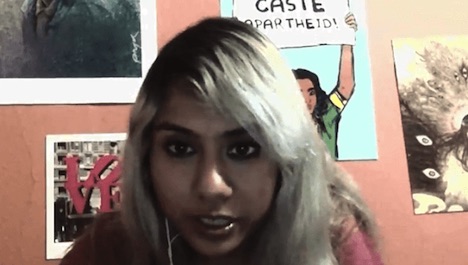New York-based Indian writer has become the first Indian to be nominated for this year's prestigious Hugo Awards, for the best literary works of science fiction or fantasy in the Best Related Works category. Mimi Mondal who describes herself as 'punk Dalit girl' belongs to the most oppressed caste in the Indian caste system. "For a very long time, it has been impossible to be a writer in science fiction internationally if you weren’t white, or especially if you weren’t a white man," Mondal said reflecting on her nomination, according to the Quint, an Indian news website. Explaining why she identifies with the punk culture, Mondal said, "Punk culture came from the working classes. It came up as a rebellion to the mainstream ‘respectable’ culture," the Quint. "In science fiction, there are the sub-genres of Cyberpunk and Steampunk. What these ‘punk’ suffixes are doing is that they are telling brave, path-breaking, and subversive stories. As a Dalit person, this sensibility really resonates with me. We have to fight for our place every day." Mondal writes speculative fiction and social justice non-fiction, and is the poetry and reprint editor of Uncanny Magazine, a science fiction and fantasy magazine which has been nominated for the Hugo Awards twice before. Mondal has been nominated for her co-edited work Luminescent Threads: Connections to Octavia E Butler, renowned Black science fiction writer. "In this book, we collected letters that authors had written to the eminent African-American woman science fiction and fantasy writer, Octavia E Butler. In these letters — we have over forty of them — the authors talk about their own journeys as writers and how Butler’s work has inspired them," Mondal said. Originally from the northeastern state of West Bengal, Kolkata, Mondal studied in India, Scotland and later in New York. In 2015, she received the Octavia E Butler Memorial Scholarship meant for writers of color, through which she attended one of the Clarion writing workshops, where Butler herself started writing. "Aliens always somehow end up in the United States even if they don’t know what the US is. Completely different universes like Star Wars or the Middle Earth, which have nothing to do with our world, are inhabited by white people as if people like us don’t exist," Mondol commented on her fictional world. Source URL |
